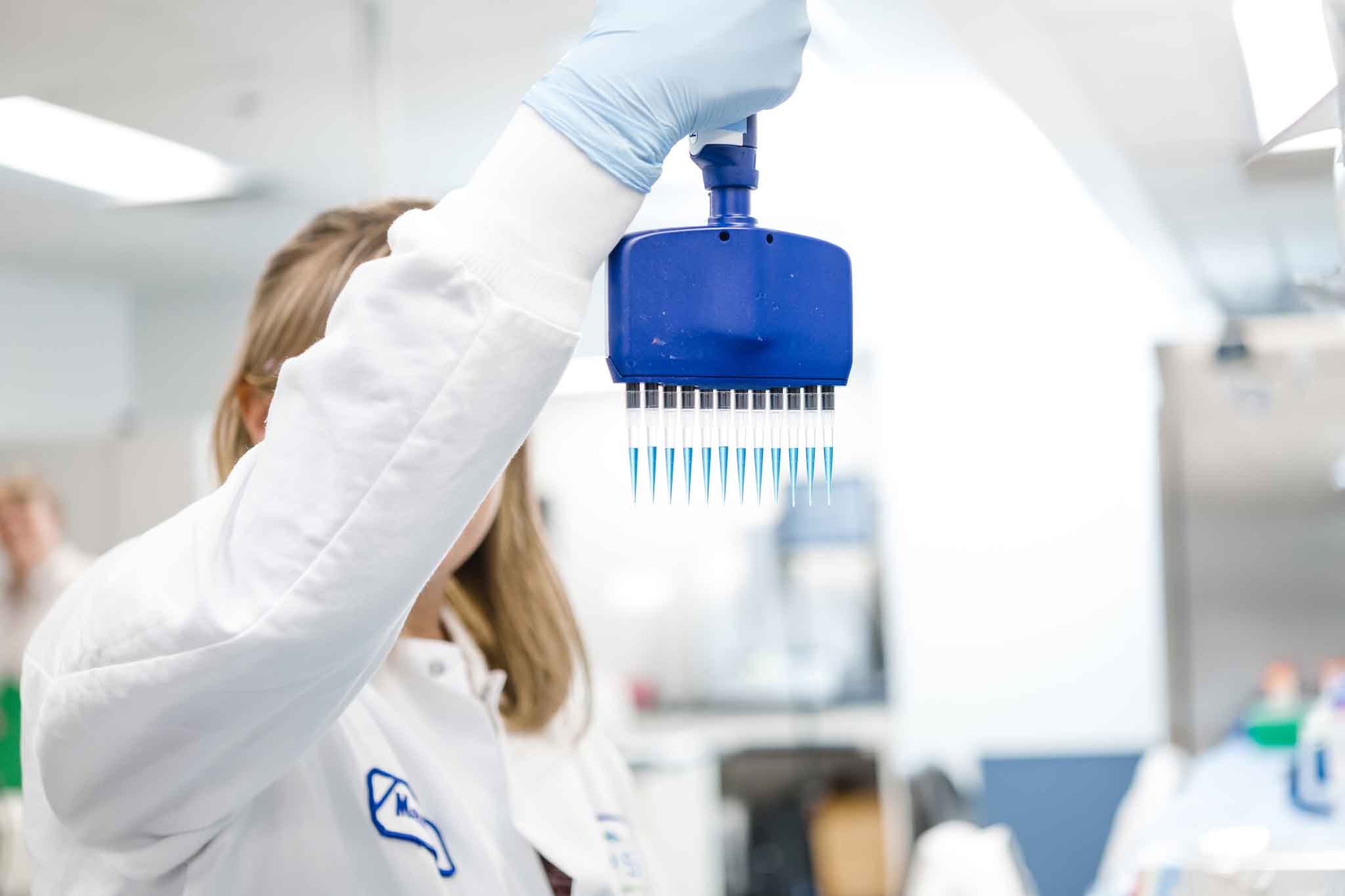Biotherapeutics
QPS leads the way in Biologics with hands on Bioanalytical Chemists, Deep Experience in Cell Based Studies, and Proven Results with Immunogenicity Testing.
Quantitation Of Biologics Using Ligand Binding Assays (LBAS)
QPS is at the forefront of a wide range of LBA technology platforms including ELISA using colorimetric, fluorescent, and chemiluminescent detection as well as Gyrolab®, electrochemiluminescence (ECL) on the MSD®, and the SIMOA® platform. Our in-depth technical expertise enables us to offer cost-effective services for pharmacokinetics (PK) and immunogenicity – both anti-drug antibody (ADA) and neutralizing antibodies (NAb) assessments – in various biological matrices.
Quantitation Of Biologics Using Hybrid UPLC-MS/MS
QPS has performing quantitation of polypeptides and proteins using LC-MS/MS since 2000. The direct method combines sample extraction, followed by sample clean up, concentration, and UPLC-MS/MS analysis. We also offer a more elegant approach starting with immuno-capture followed by enzymatic digestion, and UPLC MS/MS. Essentially, this method uses capture reagent (beads or column) to selectively enrich the target protein(s) prior to bioanalysis, resulting in lower total signal complexity and higher signature peptide signal by UPLC MS/MS. The decision on which methodology to use depends on the individual protein target and its sequence specificity. Both approaches are non-trivial and utilize the skills of our highly experienced biochemists and bioanalytical chemists.

Cell-Based Assays
Our cell culture facility is well equipped with biosafety hoods, incubators, automated cell counters, microscopes with cameras and imaging capability, as well as liquid nitrogen tanks for cell banking.
The potential of biomarkers to facilitate the development of effective and safe drugs has been well recognized as an integral part of all phases of drug discovery and development. As molecular and cell biology science advances, cell-based technologies have become a critical part of biomarker discovery, development and target validation.
At QPS, our scientific team has a wide range of molecular and cell biology experience, working with established cell lines and primary cultures to meet sponsor’s study needs. Since 2002, QPS has supported more than 75 cell-based studies for numerous sponsors. Our expertise ranges from cell banking, cell proliferation assays, on-site cell stimulation followed by cytokine induction analysis, and various target-specific functional assays. Although cell-based assays do not currently have standardized industry guidance, we have developed and validated cell-based assays in good laboratory practice (GLP) environments to assess neutralizing antibody activity in human serum samples in support of the clinical investigation of anti-drug antibodies (ADA) on drug efficacy and safety.
Capabilities include:
- Endotoxin Stimulation (Cytokine Production)
- Compound Toxicity on Monocytes (Cytokine Induction)
- Uptake Study (33P) Using Primary Cells
- Toxin Neutralizing Assay (Cell Proliferation)
- Neutralizing Antibody Assay (Cell Viability)
- Custom Functional Assay
Immunogenicity & Neutralizing Antibodies
Immunogenicity refers to a drug-elicited anti-drug immune response. All macromolecules are potentially immunogenic. Sometimes compounds with molecular weights as low as 1,000 Daltons, such as penicillin or sulfonamides, may also elicit an immune response, but all severe immune responses, including immediate hypersensitivity responses and neutralizing antibody responses, must be avoided.
Immunogenicity can be either non-neutralizing or neutralizing. While a non-neutralizing immunogenicity may not have negative effect on the pharmacodynamics of the drug, neutralizing immunogenicity can deactivate drug activity and alter drug clearance, plasma half-life, and tissue distribution. Thus, immunogenicity testing is important aspect for both the safety and efficacy of the product.
Capabilities include:
- Preparation of antigen-protein conjugates for plate coating.
- Method development and validation using ELISA format.
- Screening for positive responses in study samples.
- Confirmation test for samples displaying positive responses during screening.
- Titering of confirmed positive samples to determine the relative degree of antigenicity.
- Detection and determination of various classes of antibodies Neutralizing antibody assays.
- Neutralizing antibody assays (250+ studies)
- Cell-based 75+ studies
- ELISA or ECL 175+ studies
- Enzymatic assays 5+ studies






